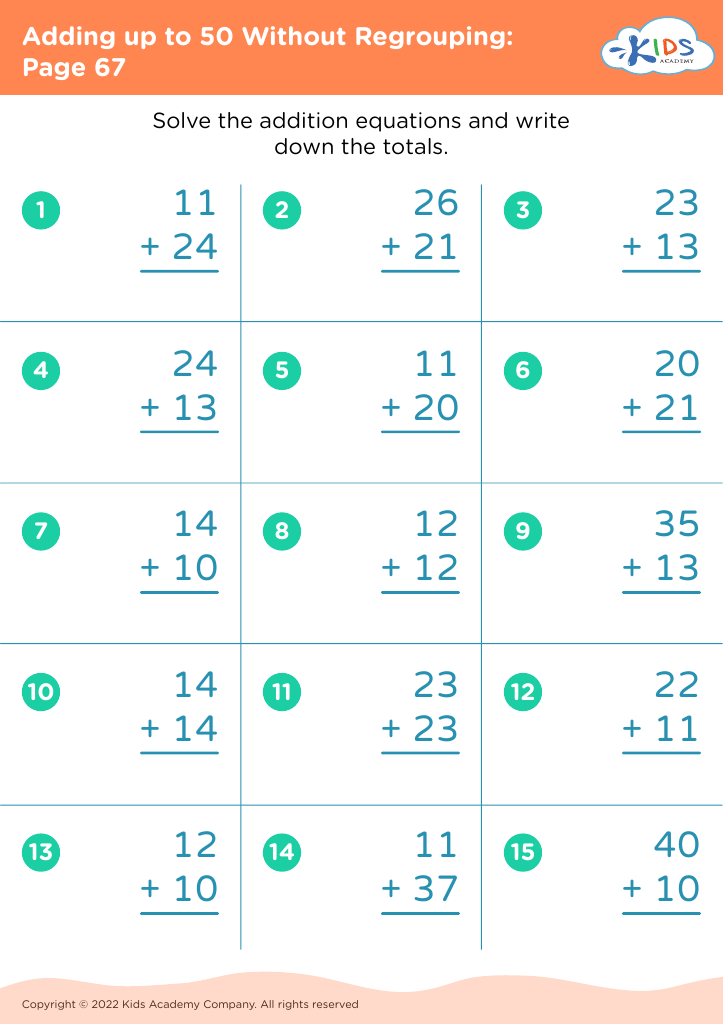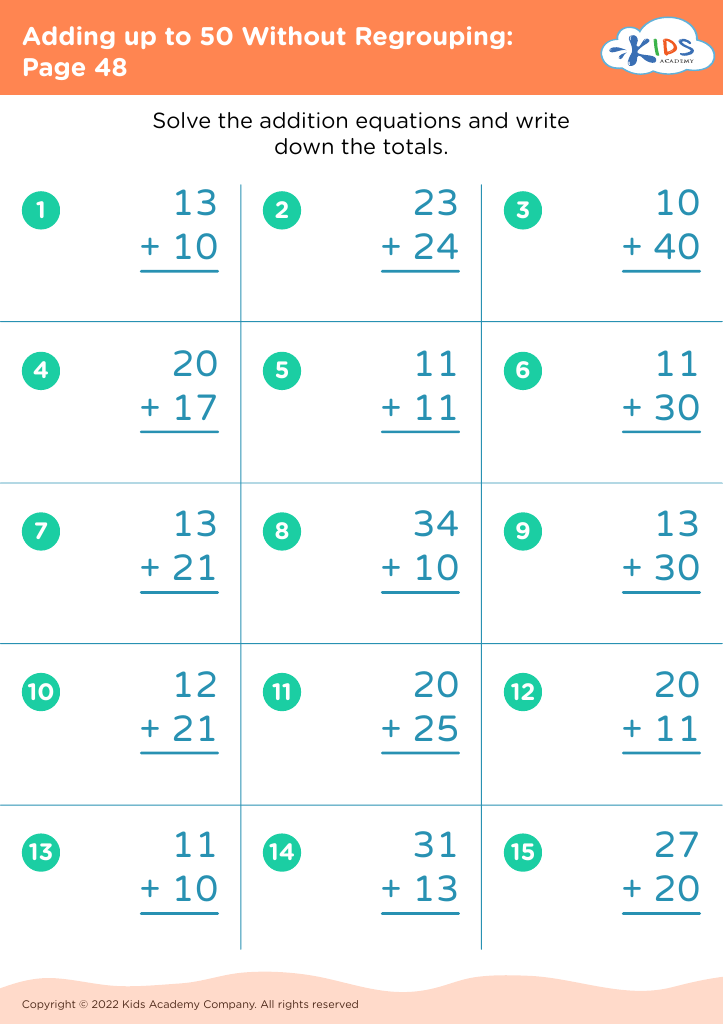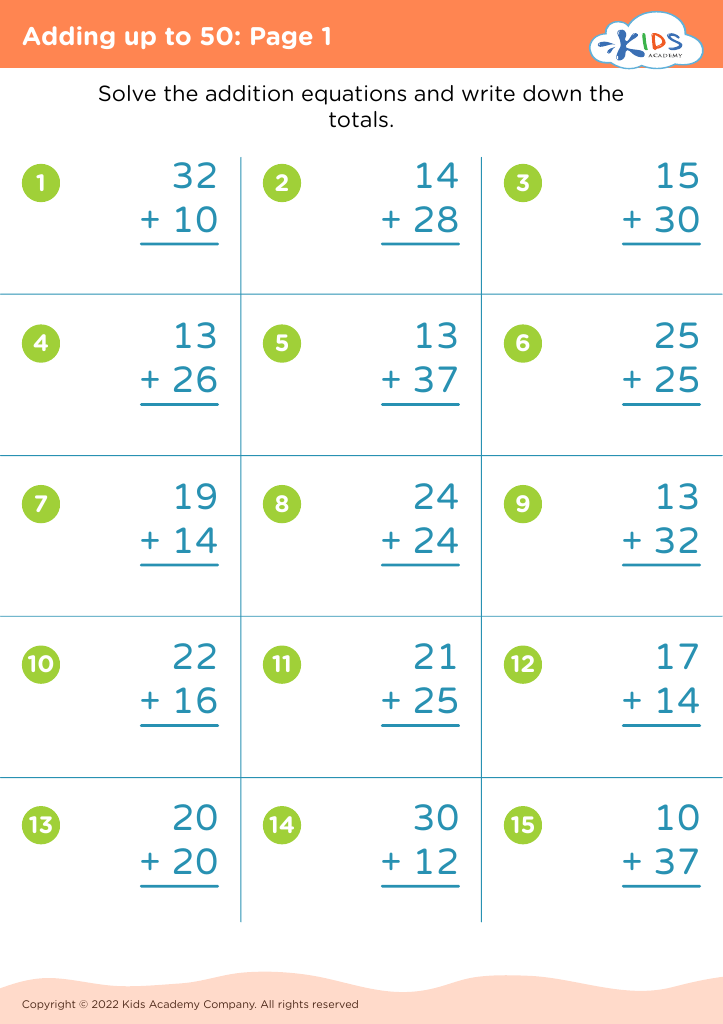Basic Addition Adding up to 50 Worksheets for Ages 6-8
7 filtered results
-
From - To
Welcome to our Basic Addition Worksheets for Ages 6-8! Designed to enhance your child's mathematical skills, these engaging worksheets focus on addition problems that total up to 50. Featuring vibrant illustrations and age-appropriate challenges, our resources help young learners build a solid foundation in math. Your child will enjoy practicing fundamental addition concepts through fun exercises that promote critical thinking and problem-solving. Ideal for classroom use or home learning, these worksheets offer clear instructions, encouraging kids to develop confidence in their abilities. Explore our collection to support your child's journey toward math mastery today! Let the learning adventure begin!
Parents and teachers should prioritize teaching basic addition, especially when sums reach up to 50, for children aged 6 to 8 due to its foundational role in cognitive development and math proficiency. Mastering addition builds critical problem-solving skills and fosters logical reasoning. As children learn to add, they also develop a greater understanding of numbers and their relationships, which is essential for future mathematical concepts like subtraction, multiplication, and division.
In everyday life, basic addition is used frequently—from counting items to managing money. By mastering addition up to 50, children gain confidence and a sense of accomplishment, promoting a positive attitude towards math. It prepares them for challenges they will face in higher grades, making math less daunting in the long run.
Additionally, incorporating addition practice in enjoyable, engaging ways helps make learning fun, which is crucial for this age group. Activities like games, songs, or stories not only solidify addition skills but also foster a love for learning. Ultimately, focusing on these basic skills during early development forms a solid foundation for lifelong mathematical competence and an appreciation for the importance of numeracy in daily life.



















